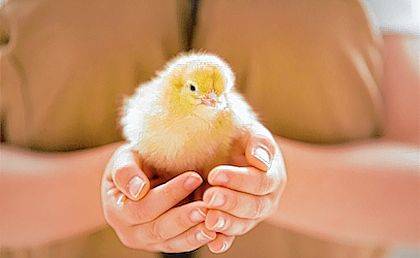
Baby chick season is upon us.
Some say the big question is whether the chicken or the egg came first, but public health pros say a more important question is whether you know the food safety do’s and don’ts involved with backyard flocks.
In 2017, live poultry was responsible for 10 Salmonella outbreaks in the United States, sickening more than 1,100 people across 48 states and killing one.
“Contact with live poultry or their environment can make people sick with Salmonella infections. Live poultry can be carrying Salmonella bacteria but appear healthy and clean, with no sign of illness,” according to the a warning from the Centers for Disease Control and Prevention.
People planning backyard flocks usually buy chicks in February. After six weeks they are moved from their indoor heat lamp environments to outdoor coops.
Most farm stores know the importance of encouraging handwashing after handling chicks in order to avoid issues of cross-contamination from hands. Furthermore, the CDC recommends always washing hands thoroughly with soap and water right after touching anything in the area where live birds live and roam.
Adults should always supervise handwashing for children. Poultry should not be allowed to live or roam inside the house, and children younger than 5 years old should not be allowed to handle or touch chicks, ducklings, or other live poultry without constant adult observation.
This chick season, remember to monitor for symptoms of Salmonella infection. Anyone that is exposed to backyard poultry and develops symptoms of Salmonella should seek medical attention and tell their doctors about the possible exposure so the proper diagnostic tests can be performed.
Symptoms for most people can include diarrhea, fever and abdominal cramps, beginning 12 to 72 hours after exposure to the bacteria.
Illness from Salmonella usually lasts four to seven days. In some people, the diarrhea may be so severe that the person needs to be hospitalized. Salmonella infections are more likely to be severe for children younger than 5 years, older adults and people with weakened immune systems, such as people with cancer, diabetes, and liver or kidney disease.


